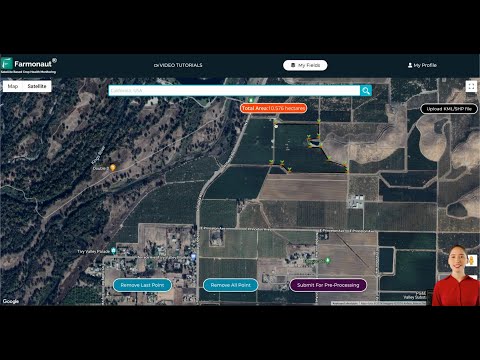Canadian Prairie Drought Crisis: Canola Production Plummets, Market Volatility Surges
“Canadian canola production forecast drops by 30-40%, from 20 million to 12-17 million tonnes due to severe drought.”
As we delve into the heart of Western Canada’s agricultural landscape, a crisis looms large over the Prairie provinces. The Canadian canola industry, a cornerstone of the nation’s agricultural exports, faces unprecedented challenges as severe drought conditions ravage crops across Alberta, Saskatchewan, and Manitoba. This comprehensive analysis explores the intricate relationship between weather patterns, crop yields, and market dynamics, offering valuable insights for farmers, traders, and policymakers navigating these challenging times in Canadian agriculture.
The Drought’s Devastating Impact on Canola Production
The Canadian Prairies, traditionally a powerhouse of canola production, are experiencing one of the most severe droughts in recent history. This environmental crisis has sent shockwaves through the agricultural sector, with far-reaching consequences for both domestic and global markets.
- Initial forecasts projected a canola harvest of 20 million tonnes
- Current estimates range from 12 to 17 million tonnes, a staggering 30-40% reduction
- Drought conditions have severely impacted crop health and yield potential
The drastic reduction in canola production is not just a number; it represents a significant threat to Canada’s agricultural economy and global food supply chains. As we at Farmonaut analyze this situation, we recognize the critical need for advanced monitoring and management tools to help farmers navigate these challenging conditions.

Market Volatility and Supply Challenges
The significant shortfall in canola production has triggered a chain reaction in the markets, leading to increased volatility and supply concerns. Let’s break down the key impacts:
- Contractual obligations at risk due to reduced harvest
- Potential losses for grain companies facing supply shortages
- Increased market volatility as traders adjust to new supply realities
- Rising concerns about meeting domestic and international demand
These market dynamics underscore the importance of real-time crop monitoring and data-driven decision-making. Farmonaut’s satellite-based farm management solutions can provide crucial insights to help stakeholders navigate these turbulent market conditions.
The Shift Towards Crop Diversification
In response to the ongoing drought crisis, many Canadian farmers are re-evaluating their crop choices and considering diversification strategies to mitigate risks. This shift in agricultural practices could have long-lasting effects on the Canadian farming landscape.
- Soybeans emerging as a cost-effective alternative to canola
- Farmers exploring drought-resistant crop options
- Potential changes in crop rotation patterns across the Prairies
- Increased interest in precision agriculture techniques to optimize resource use
At Farmonaut, we understand the importance of adapting to changing environmental conditions. Our AI-powered advisory system, Jeevn AI, can provide personalized recommendations to help farmers make informed decisions about crop diversification and resource management.
Explore Farmonaut’s advanced farm management solutions:
Long-Term Outlook and Future Harvests
The current drought crisis raises important questions about the future of agriculture in Western Canada. Climate experts and agricultural analysts are closely monitoring the situation, with many predicting continued challenges in the coming years.
- Forecasts suggest persistent dry weather patterns
- Potential impact on future harvests and agricultural investments
- Need for adaptive strategies and innovative farming techniques
- Importance of sustainable water management practices
As we look to the future, it’s clear that the agricultural sector must embrace technology and data-driven solutions to build resilience against climate-related challenges. Farmonaut’s satellite-based monitoring and AI-powered insights can play a crucial role in helping farmers adapt to changing conditions and optimize their operations for long-term sustainability.
Comparative Analysis: Canadian Canola Production and Market Impact
To better understand the scope of the current crisis, let’s examine a year-over-year comparison of Canadian canola production and related market factors:
| Year | Estimated Production (million tonnes) | Initial Forecast (million tonnes) | Actual Harvest (million tonnes) | Average Market Price (CAD/tonne) | Drought Severity Index | Soybean Production (million tonnes) |
|---|---|---|---|---|---|---|
| 2021 | 12.0 – 17.0 | 20.0 | TBD | 850 – 900 | Severe | 6.2 |
| 2020 | 19.4 | 19.0 | 19.5 | 650 – 700 | Moderate | 6.4 |
| 2019 | 18.6 | 19.0 | 18.7 | 450 – 500 | Mild | 6.1 |
| 2018 | 21.0 | 21.5 | 20.3 | 500 – 550 | Low | 7.4 |
| 2017 | 19.7 | 19.0 | 21.3 | 520 – 570 | Low | 7.7 |
This table clearly illustrates the dramatic impact of the current drought on canola production forecasts and market prices. The severe drought conditions of 2021 stand in stark contrast to previous years, highlighting the urgent need for adaptive strategies and advanced monitoring technologies in the agricultural sector.
“Soybeans emerge as a cost-effective alternative to canola, potentially reshaping Western Canada’s agricultural landscape amid drought conditions.”
The Role of Technology in Mitigating Drought Impact
As the Canadian Prairie region grapples with this unprecedented drought crisis, the importance of technological solutions in agriculture has never been more apparent. Advanced farm management tools and precision agriculture techniques can help farmers navigate these challenging conditions and optimize their resources.
- Satellite-based crop monitoring for real-time insights
- AI-powered advisory systems for personalized farming strategies
- Precision irrigation techniques to conserve water
- Data-driven decision-making for resource allocation
Farmonaut’s suite of agricultural technologies is specifically designed to address these critical needs. Our satellite-based crop health monitoring system provides farmers with up-to-date information on vegetation health, soil moisture levels, and other key metrics. This data enables farmers to make informed decisions about irrigation, fertilizer usage, and pest management, ultimately helping to mitigate the impact of drought conditions.

Global Implications of the Canadian Canola Crisis
The repercussions of the Canadian Prairie drought extend far beyond national borders. As one of the world’s largest canola exporters, Canada’s production shortfall has significant implications for global agricultural markets and food security.
- Potential supply shortages in international markets
- Price fluctuations affecting global cooking oil markets
- Increased pressure on alternative oilseed crops
- Ripple effects on livestock feed industries
Understanding these global dynamics is crucial for stakeholders across the agricultural value chain. Farmonaut’s comprehensive market analysis tools and global crop monitoring capabilities can provide valuable insights to help businesses navigate these complex international market conditions.
Policy Implications and Government Response
The severity of the drought crisis has prompted discussions about policy responses and government support for affected farmers. As the situation unfolds, we’re closely monitoring potential policy changes and their implications for the agricultural sector.
- Potential drought relief programs for affected farmers
- Discussions on crop insurance reforms
- Investments in water management infrastructure
- Support for research into drought-resistant crop varieties
At Farmonaut, we believe that data-driven insights can play a crucial role in shaping effective agricultural policies. Our advanced analytics and monitoring tools can provide policymakers with accurate, real-time information to inform their decisions and support the development of targeted assistance programs.
For developers interested in integrating Farmonaut’s powerful agricultural data into their own applications, explore our API:
The Future of Canadian Agriculture: Adaptation and Innovation
As we look to the future, it’s clear that the Canadian agricultural sector must embrace adaptation and innovation to thrive in the face of climate-related challenges. The current drought crisis, while severe, also presents an opportunity for the industry to evolve and become more resilient.
- Increased adoption of precision agriculture techniques
- Development of climate-smart farming practices
- Investment in agricultural research and development
- Collaboration between farmers, researchers, and technology providers
Farmonaut is committed to supporting this transformation by providing cutting-edge technologies and data-driven insights to farmers and agricultural businesses. Our platform’s AI-powered advisory system, Jeevn AI, is designed to help farmers adapt to changing conditions and optimize their operations for long-term sustainability.
Conclusion: Navigating the Storm
The Canadian Prairie drought crisis and its impact on canola production represent a significant challenge for the agricultural sector. However, with the right tools, strategies, and collaborative efforts, the industry can weather this storm and emerge stronger and more resilient.
As we continue to monitor the situation and provide support to farmers and stakeholders, we at Farmonaut remain committed to driving innovation in agriculture. Our advanced technologies and data-driven insights are designed to help the agricultural community navigate these challenging times and build a more sustainable future for Canadian farming.
By leveraging precision agriculture techniques, embracing crop diversification, and utilizing advanced monitoring tools, farmers can mitigate the impact of drought conditions and optimize their operations. As we move forward, the lessons learned from this crisis will undoubtedly shape the future of agriculture in Canada and beyond.
FAQs
- Q: How severe is the current drought in the Canadian Prairies?
A: The current drought in the Canadian Prairies is considered severe, with estimates suggesting a 30-40% reduction in canola production compared to initial forecasts. - Q: What are the main alternatives to canola for farmers in drought-affected areas?
A: Soybeans are emerging as a cost-effective alternative to canola, especially under drought conditions. Other drought-resistant crop options are also being explored. - Q: How is the canola production shortfall affecting global markets?
A: The shortfall is causing increased volatility in global canola markets, potentially leading to supply issues and price fluctuations in international cooking oil markets. - Q: What role can technology play in mitigating the impact of drought on agriculture?
A: Advanced technologies like satellite-based crop monitoring, AI-powered advisory systems, and precision irrigation techniques can help farmers optimize resource use and make informed decisions in drought conditions. - Q: Are there any government initiatives to support farmers affected by the drought?
A: Discussions are ongoing regarding potential drought relief programs, crop insurance reforms, and investments in water management infrastructure to support affected farmers.






